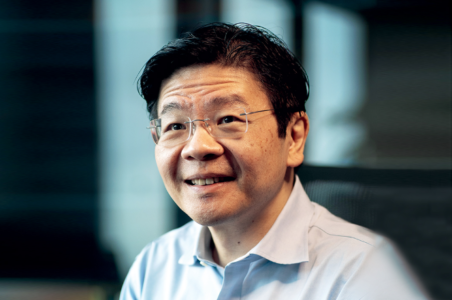PM Wong’s call to broaden the definition of success faces challenges rooted in financial, systemic, and cultural hurdles.
SINGAPORE: Prime Minister Lawrence Wong’s vision of redefining success in Singapore has sparked discussions about moving beyond traditional metrics such as wealth and job status. Speaking at a youth event and on his vodcast, PM Wong encouraged Singaporeans to pursue their dreams and embrace diverse paths to fulfillment.
“There is no need to squeeze into boxes we are not meant to fit,” PM Wong said in his YouTube video. While the sentiment resonates with many, it also raises questions about the feasibility of this ideal for all Singaporeans, given existing systemic and cultural barriers.
Financial Constraints: The Biggest Roadblock
Pursuing non-traditional paths often comes with financial hurdles. For instance, Joseph Schooling’s Olympic success was largely built on training in the United States—a privilege not accessible to many Singaporeans due to cost constraints. Similarly, creatives and entrepreneurs often struggle with insufficient local opportunities and capital.
Even for those who carve out their niche domestically, low wages remain a persistent issue. Jazz legend Jeremy Monteiro has highlighted stagnating musician salaries since the 1970s, illustrating the economic challenges faced by local talent.
A high financial cost discourages many from prioritizing passion over stability, leaving them to pursue their dreams as side hustles rather than full-time ventures. Without systemic support to mitigate these risks, PM Wong’s vision may remain out of reach for large segments of the population.
Cultural Mindsets: Redefining Value
A societal shift in mindset is also essential to redefine success. For instance, the arts industry often suffers from low audience engagement and poor financial support. While government grants help, sustainable growth requires Singaporeans to value and pay for local art.
Similarly, societal perceptions of certain jobs—such as cleaners—must evolve. The stigma attached to manual or “unstable” jobs deters individuals from considering these paths, despite their essential contributions to society. By fostering respect and dignity for all professions, Singaporeans can create an environment where alternative careers are seen as viable, rather than risky.
A Governmental Role in Changing Narratives
The government has a role to play in redefining success beyond economic terms. While PM Wong’s message is encouraging, structural reforms are necessary to align policies with this vision. The focus must shift from traditional markers of achievement, such as high-paying jobs, to holistic measures of well-being and fulfillment.
Skepticism remains about whether this call for redefinition is driven by genuine intent or broader economic and political agendas. Without addressing systemic hurdles, critics argue, the rhetoric risks being dismissed as aspirational but impractical.
A Shift Already Happening
Despite the challenges, many Singaporeans are already broadening their definitions of success. Whether it’s embracing unconventional careers, seeking personal fulfillment, or leaving Singapore for opportunities abroad, individuals are exploring what it means to lead meaningful lives.
For younger generations, success is increasingly tied to purpose and happiness rather than income. PM Wong’s vision aligns with this shift, but realizing it on a broader scale requires addressing deep-rooted financial, cultural, and systemic barriers.
Until these changes take hold, the redefinition of success will remain an aspiration rather than a reality for most Singaporeans.








